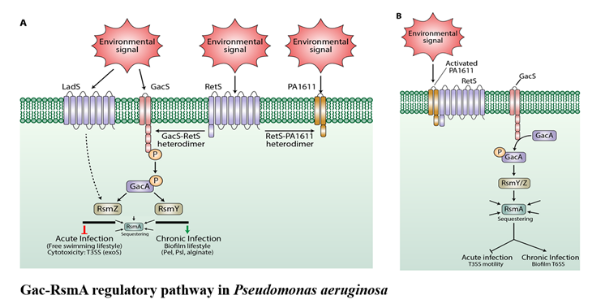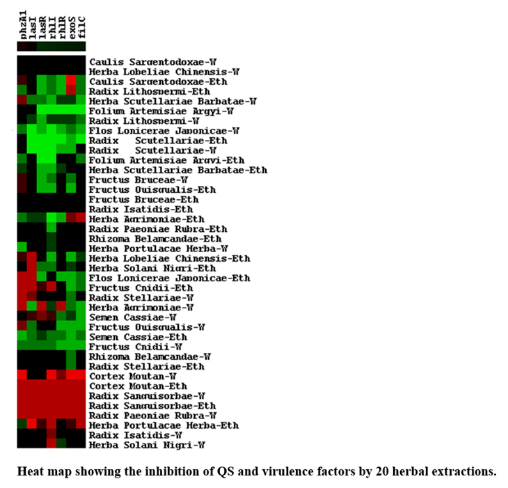Bacterial Cell-cell Interactions and Signaling
Cell-cell signal transductions and interactions in bacteria play important roles in their survival in the environments and their pathogenicity in the host. Bacteria use quorum sensing (QS) to communicate between cells, control bacterial populational behaviors, and engage interspecies interactions through sophisticated molecular mechanisms. A focus of our research is to investigate the regulatory pathways of QS and roles of QS in bacterial activities. Our research also aims to understand the molecular mechanisms and functions of interspecies interactions in microbial communities such as microbiome. To achieve our research goals, we utilize a variety of multidisciplinary techniques in our experiments, including advanced genetic, biochemical, immunological and structure-functional analysis techniques. Current projects include QS signal-molecule-mediated inter-kingdom signaling between bacterial cells and host cells; and the pathways in Pseudomonas aeruginosa that involves in interspecies interaction with other microbes in microbial communities.
Bacterial Pathogenicity and Antimicrobial Resistance
Bacterial pathogens use virulence factors to evade host immune system and cause damage to the host. This theme of our research aims to understand the molecular mechanisms of bacterial pathogenesis and the regulations/functions of virulence factors. We investigate the mechanisms that enable bacterial pathogens to sense and respond to host environment. Current projects include regulatory and functional studies of phenazine compounds and the cell membrane anchored protein secretion apparatus (T3SS & T6SS) in Pseudomonas aeruginosa. The RetS-LadS-PA1611-RsmA pathway, in particular, has been a recent focus of our research. Understanding bacterial pathogenesis is essential for the development of novel preventative measures or new drugs to treat infectious diseases.

Exploration of New Antimicrobial Drugs and Strategies
The spread of antibiotic resistance in bacterial pathogens poses a real threat to human health. There is an urgent need to develop novel antibiotics to counter such a threat. However, the occurrence of antibiotic resistance is a way of surviving for pathogens, and the rise of resistance to traditional antibiotics is bound to happen. Indeed, the inevitability of the rise of resistance against any newly developed antibiotics is a major challenge in dealing with antibiotic resistance. Using a high throughput, high-content drug screening platform established in our lab, we have taken a innovative route for antimicrobial discovery. We aim to develop antibacterial drugs that target the pathogen’s pathogenicity from traditional herbal medicine. Such "anti-pathogenic agents" or “antipathogenics” target virulence factors and their regulatory systems, which will theoretically prevent the pathogens from harming human host, thereby controlling the disease caused by the pathogen. Since such agents do not exert pressure on pathogens’ survival, they would less likely render resistance in pathogens.







